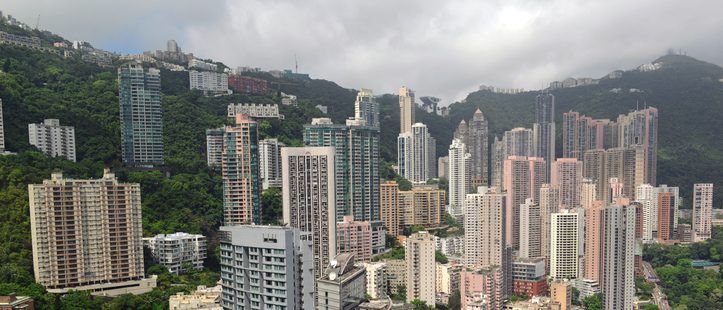Our Opinion: 2019
‘Slowbalisation’ of global property

In five of the world’s most desirable cities—Hong Kong, London, New York, Sydney and Vancouver—home prices climbed steadily for several years after 2009.
Now, though, particularly in the priciest, “prime” areas of such cities, excess is being shed. In Vancouver, where prime prices have fallen by 12% in the past year, agents advertise significant discounts on its larger properties. In Hong Kong, prices started dropping in August and have now fallen by 9%. Developers there were unnerved when their bids for a vacant parcel of land in the world’s most expensive neighbourhood – The Peak – failed to even meet the government’s minimum reserve price in October.
In Manhattan, prices fell by 4.3% last year; StreetEasy, an online-listings firm, calculates that 60% of homes offered for $1m or more in 2018 failed to sell. In Sydney, prime prices have slipped by 16% since 2017.
In London, prime-property prices have fallen by 20% from their 2014 peak. Sales of homes worth over £1m are 20% lower than in 2016. Reseach by Savills, says the reasons are falling cross-border capital flows; government policy; the cost of money; and increased supply.
These factors are common to other global cities, too. House-price movements have become increasingly correlated across the world, and the link is greater between big cities than between countries. That is because housing is becoming a more global asset class rather than a purely local one. The prevailing winds of the international market-place affect prime residential property much as they do shares and bonds. The IMF notes that international correlation increases at the time of severe recessions and can help predict the risk of a downturn.
One factor underlying that correlation is growing wealth creation – particularly in Asia. A good portion of new found wealth finds its way into properties, at home and abroad. But the number of new millionaires has been falling. A Swiss bank recently forecast that the rate of increase in the number of new millionaires will slow by 20% in the five years to 2023.
In China, home to one-sixth of the world’s new millionaires, it has become increasingly difficult to move money out of the country. In 2015-16, $1.3trn flowed out of China (excluding foreign direct investment). But the authorities have since cracked down on corruption and tightened enforcement of a limit of $50,000 per person on access to dollars and other foreign currencies. That has affected residential markets far and wide. America’s National Association of Realtors estimates that Chinese buyers spent $30bn on homes in America in the year to March 2018, down by 4% from a year earlier. In Australia, where international buyers are restricted to new-builds, Chinese investment in new development fell by 36% to A$1.3bn ($970m) in 2018. Yet the Chinese still account for a quarter of international buyers, as they do in London.
Politicians have played their part, too. Encouraged by disgruntled citizens who have found themselves priced out of property markets, city and national governments have sought to cool market excesses. Vancouver raised its transaction tax on property purchases by non-residents from 15% to 20% in 2018. Britain’s government has increased transaction taxes. It levies as much as £288,000 on a £2.5m home purchase, up from £100,000 in 2010. It has also imposed extra taxes on non-citizens. New Zealand has gone furthest, introducing a blanket ban on foreign purchases of existing homes last October.
Rental yields have been forced down in part by the weight of supply too, making property a less attractive investment. Both London and New York are now awash with new, luxury, apartments.
Taken together, these factors reflect a world in which “slowbalisation” (the unwinding of two decades of global economic integration) has taken hold. Although less well-heeled residents of those cities will be glad of a fall in prices, a cooling of foreign interest may have unwelcome consequences for the wider market. A report in 2017 by the London School of Economics found that, on balance, international investment in the city’s residential property helped to create housing supply that would otherwise not have materialised.
Meanwhile, estate agents, whose duty it is to be eternally optimistic, contend that these markets cannot lie low for long. The theory goes that these cities are desirable for a reason and that land is limited; so prices will recover. This argument has a kernel of truth. Demand for property chronically outstrips supply in Hong Kong, for example, and investors from mainland China feel safer there. Yet any rebound is unlikely to be as strong as the last one.
5th April 2019
